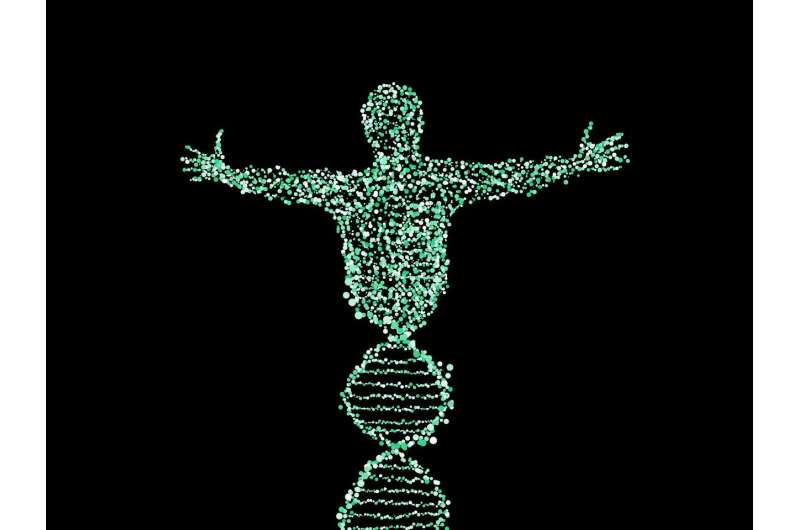This article has been reviewed according to Science X's editorial process and policies. Editors have highlighted the following attributes while ensuring the content's credibility:
fact-checked
peer-reviewed publication
trusted source
proofread
How a specific metabolite tells cells whether to repair DNA

Metabolites called nucleotides are the building blocks of DNA and can impact cancer's sensitivity or resistance to chemotherapy and radiation in brain cancer. Findings from researchers at the University of Michigan Health Rogel Cancer Center, published in Cancer Discovery, show how a specific nucleotide metabolite, called GTP, controls responses to radiation and chemotherapy in an unexpected way.
"We learned that if you increase a cell's GTP levels, it makes it really resistant to radiation or chemotherapy. Lowering GTP levels, the cell becomes much more sensitive," said Daniel Wahl, M.D., Ph.D., associate professor of radiation oncology at Michigan Medicine and senior author of this paper.
Researchers have long known that levels of nucleotides like GTP control how fast DNA damage is repaired, which in turn controls sensitivity to therapies.
Researchers previously thought that this only happened because nucleotides are the building blocks that form DNA. But these findings uncover an entirely new way that nucleotides control DNA repair.
"GTP impacts resistance or sensitivity to treatment not just because it's a building block of DNA, as we previously thought," Wahl continued.
"Instead of only affecting the physical structure of the DNA, it also acts as a signaler. The levels of GTP turn on a signaling pathway and give cells instructions to repair damaged DNA."
What's more, Wahl and collaborator Weihua Zhou, Ph.D., found this to be true for normal tissue in addition to cancer cells.
"It's a generalizable finding," said Zhou, research assistant professor of radiation oncology and first author of the study.
"In the future, we'd like to develop therapeutics that leverage the relationship between GTP and DNA damage response, both to make cancer cells more sensitive to chemotherapy and radiation and also to boost GTP levels to protect normal tissue from damage."
Wahl and a team of researchers have an ongoing clinical trial for patients with brain cancer focused on the role of GTP in treatment responses.
Wahl says these findings are fundamental biologic discovery that translates into clinical applications for this trial and potential future trials.
"We knew that depleting GTP might make brain cancers respond better to chemotherapy and radiation. Now these findings show why that's happening," Wahl said.
The discovery that GTP acts as a signaler helps explain the biological underpinnings of why focusing on GTP is a worthwhile pursuit and could help researchers figure out which patients will derive the most benefit from GTP modulators in the clinical trial.
"When the signaling pathway is active, the cancer is resistant to radiation and chemotherapy," Wahl continued. "These findings might help us select the right patients for the next line of clinical trials."
More information: Weihua Zhou et al, GTP signaling links metabolism, DNA repair, and responses to genotoxic stress, Cancer Discovery (2023). DOI: 10.1158/2159-8290.CD-23-0437



















